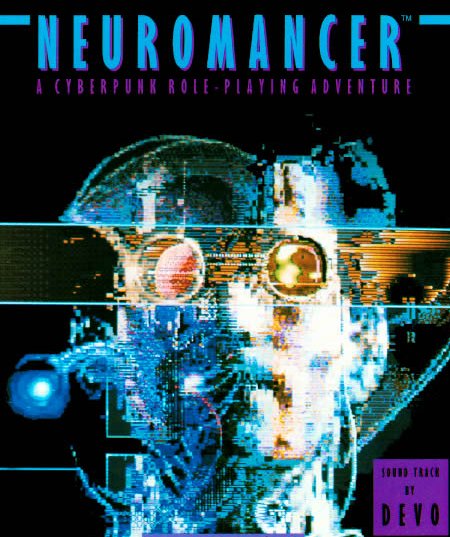Our book group choice for January 2006 is Neuromancer by William Gibson. The Matrix is a world within the world, a global consensus-hallucination, the representation of every byte of data in cyberspace.
The year is 2031. The world is a vast sprawl of urbanized ruins, interconnected by a vast network of computer systems. In this world, there are those who live on the edges, hackers and mercenaries who make their living in the shadows. One such person is Henry Case, a burned-out hacker who has lost his edge.
One day, Case is approached by a mysterious woman named Armitage. She offers him a chance to get his life back, if he can help her steal a powerful computer program from a powerful corporation. Case agrees, and he is soon plunged into a world of high-stakes corporate espionage, where the stakes are life and death.
Along the way, Case meets a cast of colorful characters, including the mysterious Wintermute, a powerful AI; the deadly Molly Millions, a cyborg assassin; and the charismatic Spider Murphy, a fixer who knows everyone and everything in the Sprawl. Together, they must race against time to steal the program and prevent it from falling into the wrong hands.
As the story progresses, Case begins to uncover the truth about himself and his past. He learns that he was once a brilliant hacker, but he was betrayed and left for dead. Now, he has a chance to redeem himself, but it will mean facing his own demons and risking everything.
Neuromancer is a classic cyberpunk novel that has been praised for its groundbreaking vision of the future. It is a dark and gritty tale of crime, corruption, and technology, but it is also a story of hope and redemption. Gibson’s writing is sharp and evocative, and he creates a world that is both believable and terrifying.
Discussion Questions
- Molly certainly kicks a copious amount of butt throughout the novel. But is she a strong female character beyond the fact that she can throw a punch with the greatest of ease? Why or why not?
- Neuromancer is set in a high tech, stylized future, but its tone comes from the lower, gritty, criminal rungs of society. What effect does this contrast have on your understanding of the novel?
- “Power, in Case’s world, meant corporate power” (17.14). What does this bit of information imply about Case’s world, and Case, himself, for that matter?
- Does it tell us anything important about any other particular character or the setting in the novel?
- Did Wintermute help Corto by creating Armitage in his place? Did he hurt him? Or was it something in between? How can you tell?
- Molly tells us how she got her modifications, but she never explains why. Given what she’s told us about her past and her personality, why do you think she did so?
- Do you think it was a good call?
- Why do you suppose the Dixie Flatline wants to be deleted after the job is over?
- Does Neuromancer have an antagonist? Is so, who or what and why? If not, why not?
- Casting Call. Neuromancer is being developed as a movie. What actors do you want to see in what roles?
- How does the novel’s depiction of technology compare to our own understanding of technology today?
- What are the ethical implications of the novel’s treatment of artificial intelligence?
- How does the novel’s portrayal of cyberspace challenge our notions of reality?
- What does the novel say about the nature of consciousness?
- What is the novel’s message about the future of humanity?
- To whom would you recommend the novel?

